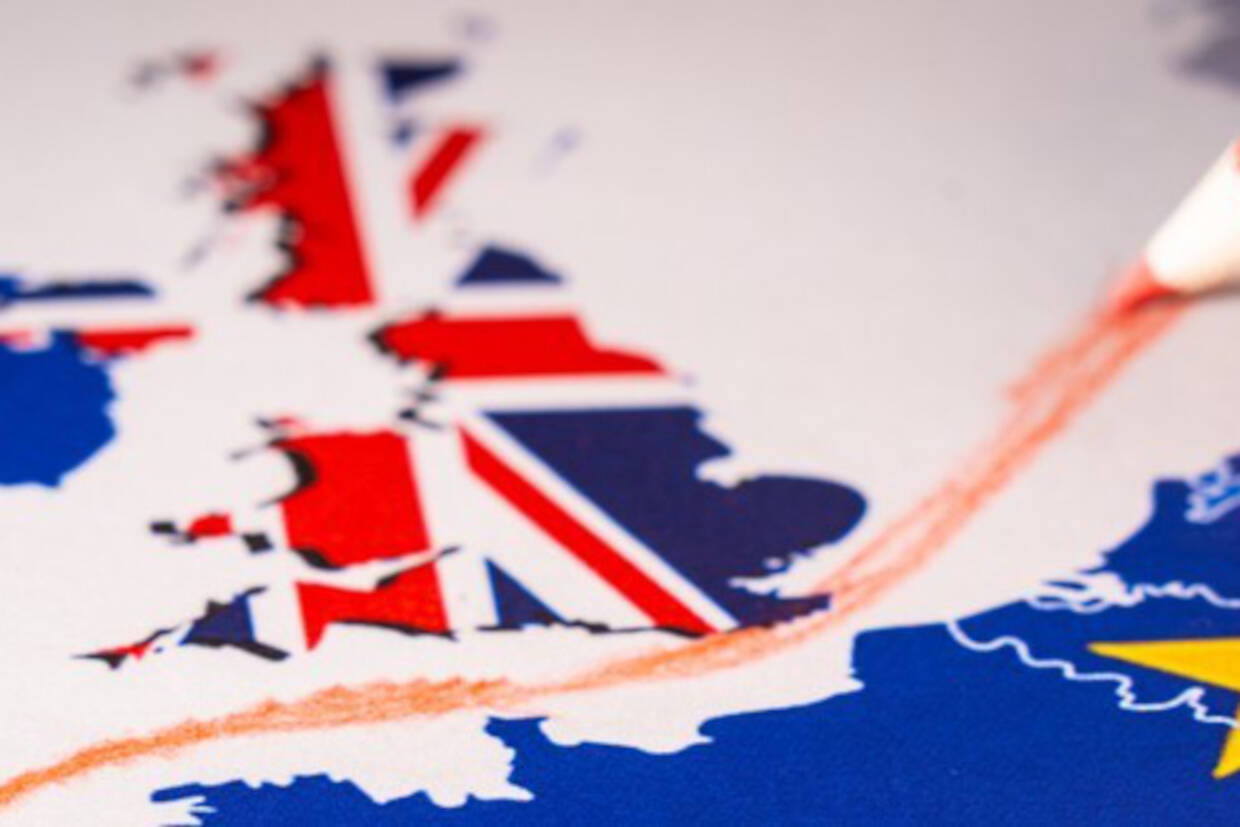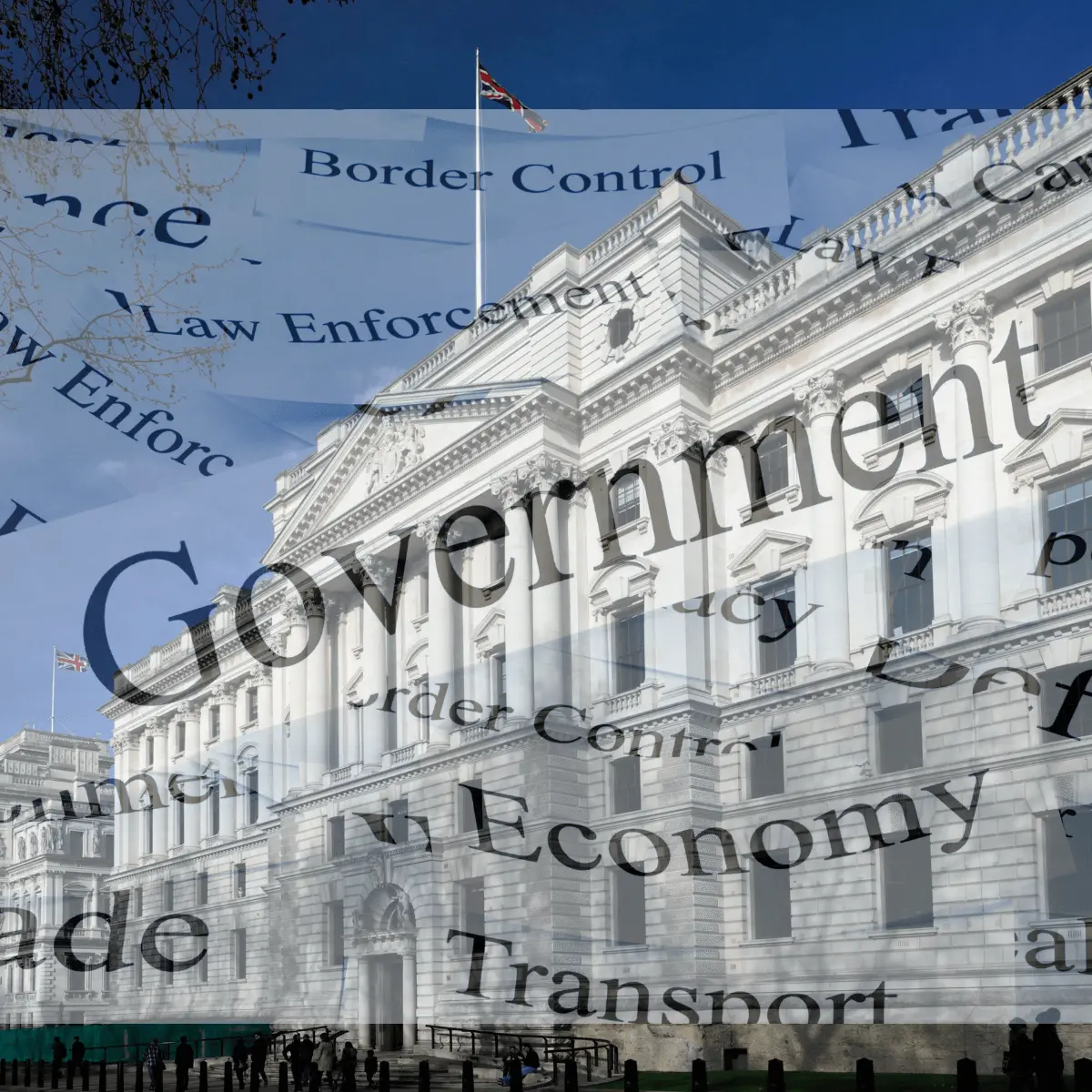It’s official – the UK has left the EU after 47 years of membership and will now chart its own economic and cultural course.
For some, this was a moment to celebrate, an achievement for which they had campaigned for decades, while for others it was a moment of regret, with the country leaving what they view as a progressive and supportive institution.
At this point, much about Britain’s future relationship with both the EU and other nations around the world remains undecided.
Under the withdrawal agreement, most EU laws will continue to be in force until 31st December, when the transition period comes to an end.
And the question of no deal also still hangs in the air, with both sides hardening their stance before impending trade talks.
This means that the impact of Brexit on jobs, the economy and businesses is still difficult to predict.
In this article, we’re going to take a look at some of the possible opportunities and pitfalls presented by Brexit. We’ll take a look at what a few key organisations think and ask what recent developments on important issues could signify for the future.
Key Bodies
The European Union
Boris Johnson’s withdrawal deal diverged from Theresa May’s close alignment stance, meaning that impending trade negotiations between the UK and the EU are likely to remain challenging.
For example, the European Council President Charles Michel has warned that diverging from EU standards would give the UK less access to the single market.
The UK has been equally firm. In January, Sajid Javid, the then UK Chancellor, shocked the business community by telling them that there would be ‘little or no’ alignment with EU regulations.
Speaking to the Financial Times, he said: “There will not be alignment, we will not be a rule-taker, we will not be in the single market and we will not be in the customs union – and we will do this by the end of the year.”
The EU accounted for 46% of all UK exports in 2018, making it the country’s largest market, so the benefits of striking deals with other countries would need to be balanced against the cost of greater regulations when trading with the EU.
Wealth management provider Coutts summed up the dichotomy:
“A major factor will be alignment with EU standards and regulations, but these could also have an impact on the UK’s ability to strike deals with other markets. Ultimately, much depends on whether negotiators can keep the wheels of commerce as well-greased as possible.”
Opportunity: More global trade possibilities
Pitfall: Loss of trade with our largest partner
The Bank of England
One of the strongest warnings on the UK’s future came on the eve of Brexit Day when the Bank of England cut its long-term growth forecasts, saying that Boris Johnson’s plans for a fast Brexit would result in “lasting economic damage”.
According to The Guardian, the Bank has cut its GDP growth forecasts for each of the next three years, with 2020 reduced from 1.2% to just 0.8%.
Speaking at his final rate-setting meeting before he stands down, Bank Governor Mark Carney said that the government’s hard deadline of completing the negotiations by the end of 2020 would concentrate the impact of Brexit and would not give the economy enough time to adjust to the new relationship.
However, the Bank’s Monetary Policy Committee has stated that Johnson’s decisive victory in the general election is set to give the economy a 0.2% boost in the first three months of the year, and that the reduction in political uncertainty and increased government spending would improve economic growth in the months ahead.
Opportunity: Political stability has improved consumer confidence. Low rates and fiscal stimulus will support the economy, too.
Pitfall: Uncertainty over the future trade deal and concerns over a rushed Brexit means that UK companies may struggle to draw investment.
World Trade Organisation
The World Trade Organisation (WTO) doesn’t have an official stance on Brexit and has hardly commented on the withdrawal. However, it has still been a cornerstone of Brexiteer arguments for a no-deal Brexit.
‘WTO rules’, as they are often referred to, are a series of regulations that Britain would automatically fall back on if it were to leave the EU without a trade deal.
They essentially require each country to produce a list of tariffs and quotas on goods, which can be applied when any of the 164 WTO members do not have a trade deal in place with another country.
The government is proposing that 87% of imports to the UK will be tariff-free, compared to 80% before Brexit, with some protections in place for key British industries like cars, meat and ceramics.
But switching to WTO rules will likely impact tariffs with the EU. This could have a huge impact on trade, especially for goods like dairy products, which could see tariffs increase by more than 35%.
“It’s not going to be the end of the world in the sense that trade is going to stop and that everything is going to fall down,” WTO Director-General Roberto Azevedo told BBC News last year, “but it’s not going to be a walk in the park either.”
Opportunity: Overall lower import and export tariffs, less red tape and protection for key industries.
Pitfall: Some industries could see tariffs increase dramatically, depending on what they are and where they trade.
The CBI
The Confederation of British Industries came under fire from Brexiteers for its vocal pro-remain stance, and has continued to push to retain freedom of movement and to enter a customs union.
An article in The Telegraph reports that following Boris Johnson’s convincing election victory, the organisation is now trying to repair its relationship with the government and has changed the focus of its lobbying to target more “pragmatic” goals.
In January, the Financial Times reported that the CBI is urging the government to include businesses in post-Brexit trade talks.
At an EY-sponsored event in Bristol, CBI Director-General Carolyn Fairbairn said that trade negotiations, immigration reform, tackling climate change, and improving skills should be the focus for the government. She stated that the first two are immediate steps the government could take to create a fairer, more sustainable and prosperous UK for all.
Opportunity: The chance to strike a deal that improves recruitment and trade opportunities for UK businesses.
Pitfall: Business interest groups could be sidelined in trade talks as poor relations between lobbyists and government continue.
Key issues:
Employment
The impact that leaving the EU will have on jobs is controversial, and for many the subject is linked with their views on migration – be they positive or negative.
Several studies have been conducted on the subject – most of which predict job losses. For example, research from the University of Sheffield and the University of Cambridge found that the decline in EU nationals living in the UK after leaving the EU could result in the loss of nearly 120,000 jobs in London alone, and that migration leads to an overall increase in employment.
At the moment, employment figures in the UK are at a record high of 76.3% – it would be terrible if Brexit contributed to a reversal of this current positivity.
Opportunity: The ability to enrich the economy with skilled foreign workers and reduce unemployment.
Pitfall: Reduced immigration could create recruitment difficulties and lead to job losses.
Skills
One of the biggest challenges for the UK is productivity: an area in which the country has famously lagged behind its European counterparts.
Perhaps that’s why Sajid Javid said that his focus following the election would be “skills, skills, skills”, and he intended to encourage lifetime learning and reskilling in places where traditional industries have changed, with a renewed focus on the role of higher education colleges.
Opportunity: The chance to plan the country’s economy and develop a workforce with skills to meet future needs.
Pitfall: Short-term, reactionary policies will cost a lot but may have little benefit.
Businesses
The latest Red Flag Alert data from Q4 2019 makes for a sobering read: large numbers of UK businesses are facing closure.
There are 494,000 businesses in significant financial distress – the highest number since
recording began, with businesses registered since 2014 experiencing the highest levels of distress. The total number of businesses in significant distress has risen by 81% since the start of 2016.
It won’t take much to tip hundreds of thousands of businesses into failure. If conditions post-Brexit prove to be challenging, many businesses may be unable to continue trading.
Small business owners are worried. A survey conducted by research organisation Censuswide has revealed that many small businesses are unhappy with the government’s approach to Brexit and feel that it has failed to protect them from the negative impacts of leaving the EU.
In fact, one third of respondents said that they would consider moving their business abroad to remain part of the EU and the common market.
According to The Independent, there is increasing concern that Boris Johnson is prepared to sacrifice UK business interests to avoid accepting EU regulations. He has also been criticised for focusing the government’s Brexit support on large companies and not small businesses.
Opportunity: Large companies will likely be given some form of government support should they experience difficulties – the UK car industry is one example.
Pitfall: Small businesses represent the biggest opportunity for economic growth. However, if a large number of them move abroad, this could stifle post-Brexit recovery.
Take the Risk Out of Brexit
While the UK government’s stance on Brexit and their plans are becoming clearer, the economic impact of those decisions is as uncertain as ever. At times like this, it’s crucial to be informed.
Red Flag Alert’s business intelligence provides real-time updates on the financial health of every UK business. While uncertainty hangs over the economy, our algorithm provides clarity for business owners, highlighting risk and giving them an early warning system when a client is struggling.
Every year, £4bn of debt is never repaid when businesses fail – use Red Flag Alert to make sure you avoid the pain of unpaid invoices.
Discover how Red Flag Alert’s experienced team can help you mitigate risk and protect your business. Why not get a free trial today and see how Red Flag Alert can help your business?




